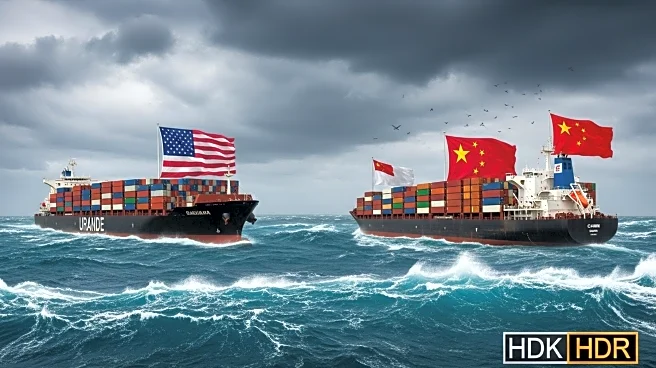What is the story about?
What's Happening?
Trade tensions between the United States and China are intensifying as new port fees are introduced. Currently, tariffs on Chinese imports stand at 30%, and President Trump has announced that the U.S. will impose export controls on critical software starting next month. These measures are part of ongoing trade disputes that have affected global supply chains and economic relations between the two countries. The introduction of new fees and controls is expected to further strain the trade relationship, impacting businesses and consumers reliant on international trade.
Why It's Important?
The escalation of trade tensions between the U.S. and China has significant implications for global economic stability. Increased tariffs and export controls can disrupt supply chains, leading to higher costs for businesses and consumers. Industries such as technology and manufacturing, which rely heavily on international trade, may face challenges in sourcing materials and components. The broader economic impact includes potential inflationary pressures and shifts in trade alliances. As the world's two largest economies, the actions taken by the U.S. and China can influence global market dynamics and economic policies.
What's Next?
The introduction of new port fees and export controls is likely to prompt reactions from major stakeholders, including businesses, trade associations, and government officials. Companies affected by these measures may seek alternative supply chains or advocate for policy changes. Diplomatic negotiations between the U.S. and China could be pursued to address the trade disputes, although the outcome remains uncertain. The situation may also lead to increased scrutiny of trade policies and their impact on economic growth and international relations.















